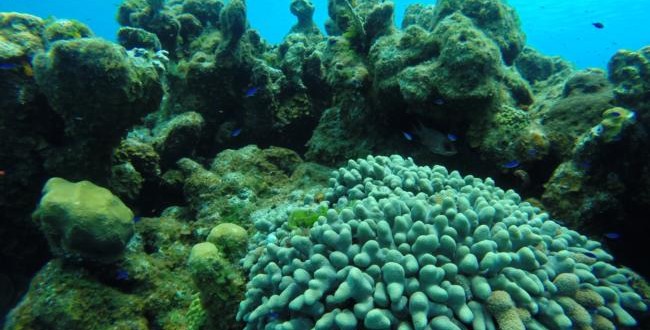Tiffany Razo, a graduate student at Jacksonville University’s Marine Science Research Institute, has played a role in a number of Bahamian ecological studies, including assessing coral reef health on San Salvador patch reefs and assisting in studies on lionfish and other fish populations near Andros. Using crowdfunding site Experiment.com, Razo hopes add one more by raising the $5,000 needed to study the influencing factors on the San Salvador coral reefs.
Razo proposes to sample five patch reefs around San Salvador during summer 2015 with the help of multiple assistant researchers. She hopes to determine the main influencing factors of the reef communities, and determine if the reefs are in a state of decline or have become “healthier” since 1998.
Coral reefs are crucial ecosystems to sustaining island populations, as a food source for local fishermen and economically as area eco-tourism. Better understanding them, Razo said, “will allow for better management and monitoring of these essential ecosystems.”
According to the project’s description on Experiment.com, “San Salvador is a remote Bahamian island with limited local anthropogenic impacts to coral reef ecosystems, resulting in near pristine reef communities. However, due to the growing tourist facilities on San Salvador, the future of these reef communities may have a different outlook.”
The funds, Razo said, will allow the project group to travel to San Salvador, Bahamas and conduct field research. The trip will include collecting benthic and fish data in the field via diving. The funds will also cover housing at the Gerace Research Centre on San Salvador, rent fuel tanks, transportation on the island, and field equipment.
“At a time when these essential coral reefs ecosystems are being adversely impacted by numerous factors,” she said, “research identifying primary influencing factors on these reefs will help future recovery.”
The project currently has 20 backers totaling $1,175.
To learn more and to back the project visit www.experiment.com.
 Wave Magazine Online Jacksonville University News Hub
Wave Magazine Online Jacksonville University News Hub
